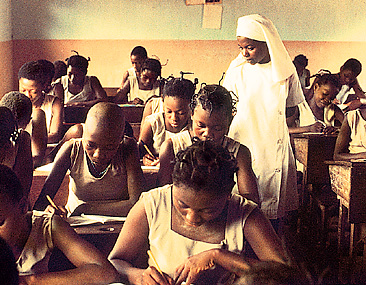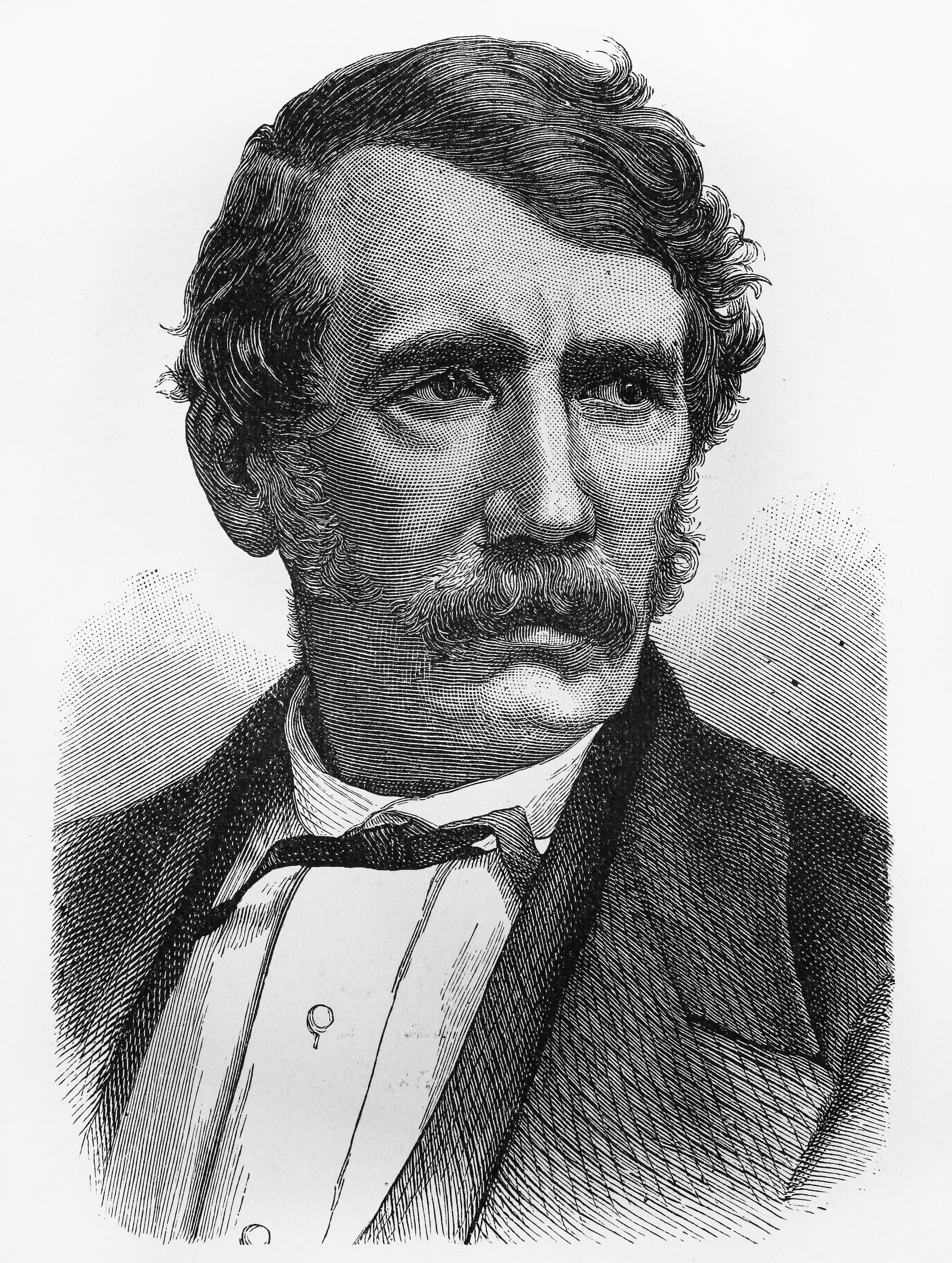Missionary is a person sent by a religious group to convert others to his or her faith. Many missionaries also work to provide education, agricultural information, medical care, and other social services to the people they serve.

Religions attract converts in various ways. Buddhist organizations spread the teachings of Buddha throughout the world by sponsoring lectures and meditation sessions. Islamic missionaries conduct worship services and distribute religious literature. Some religions today, including Judaism, have no missionaries because they do not seek converts. Christianity carries on the most extensive missionary activities. This article discusses Christian missionaries.
Missionaries are motivated by beliefs in a God who sent His Son, Jesus Christ, to save them. Jesus commanded His followers to be His witnesses. Christian missionaries may serve several cultures or witness to people in their own culture. Missionaries may be ordained clergy, or unordained individuals with special abilities and training. They may be full-time or part-time, long term or short term. They may be men or women and paid for their work or volunteers.
Today, Christian denominations consider the entire world, especially large cities, as a mission field. Missionaries thus are sent to all parts of the world from all parts of the world.
Duties.
Christian missionaries explain the teachings of their faith and try to inspire devotion to Jesus Christ. They lead worship services, preach sermons, translate the Bible, write religious materials, organize churches, and guide converts in the practice of their faith.
Many missionaries also use their skills to relieve poverty and disease among the people they serve. Others provide relief from such disasters as earthquakes, famines, floods, and storms. Missionaries usually work through national schools and hospitals. But in some remote areas, they still provide the only education and health care available. Missionaries who have technical skills may train people in business methods, construction trades, or improved farming techniques.
Some missionary organizations direct their efforts to special groups. Such organizations as InterVarsity Christian Fellowship, Youth for Christ, Campus Crusade for Christ, and Navigators work with students. Prison Fellowship Ministries works with people in prisons.
Several groups loosely related to Christian denominations place special emphasis on conversion. Able-bodied Jehovah’s Witnesses are expected to work a certain amount of time each month spreading their faith to people on street corners and in private homes. Many Mormons who are young adults or retired people volunteer to spend up to two years as full-time missionaries without pay. Some organizations express their faith chiefly through social work and acts of charity. The Salvation Army is one of the largest such organizations in the world.
Organization.
Most missionaries are sent by Roman Catholic dioceses and religious orders, and by Protestant denominations and churches. The fastest-growing groups belong to evangelical Protestant denominations, especially charismatic and Pentecostal churches. More missionaries come from the United States than from any other country.
Several Catholic religious orders devote much of their efforts to missionary activities. These groups include the Catholic Foreign Mission Society of America (Maryknoll) and the Society of Jesus (Jesuits). The Congregation for the Evangelization of Peoples or Propagation of the Faith directs worldwide Catholic mission work. Protestant missionaries are recruited and financed by denominations, church-sponsored organizations, and independent agencies. The Division of World Mission and Evangelism of the World Council of Churches coordinates much Protestant missionary activity. The Mission Exchange and CrossGlobal Link perform this service for evangelical Protestants.
History.
Christian missionary work began soon after that religion was founded nearly 2,000 years ago. Christianity spread rapidly because of such enthusiastic missionary activity as that of the apostles Peter and Paul. By the 300’s, Christianity had spread throughout the Roman Empire, including North Africa. The missionary Saint Patrick brought Christianity to Ireland in the 400’s. During the Middle Ages, such Christian missionaries as Saint Boniface converted the people of most European countries. By the 1500’s, Roman Catholic missionaries were sailing with European explorers and soldiers to little-known regions of Africa, Asia, and the Americas. During the 1500’s and 1600’s, Dominicans, Franciscans, and Jesuits and other Catholic orders set up many missions throughout the world.
The Protestant missionary movement began in the 1600’s, when Protestant nations of Europe established trading companies and colonies overseas. John Eliot and David Brainerd were famous early missionaries to American Indians. In the 1800’s, thousands of missionaries, including William Carey, David Livingstone, and Robert Morrison, worked in the Far East and Africa. The period became known as “the great century” of Protestant missions.

Revivalist preachers, such as Jonathan Edwards and George Whitefield, sought converts among American colonists in the 1700’s. Later, revivalists from Baptist, Methodist, and other churches won converts and established congregations on the U.S. frontier. Revivalists of the 1800’s and early 1900’s gained converts in the growing cities. Later in the 1900’s, evangelists, such as Billy Graham, used large crusades, radio, and television to seek converts. Today, large churches often have effective programs that gain many converts.
Many people in mission lands resented foreign missionary activity. This resentment arose partly because missionaries often promoted foreign political and economic interests among the people with whom they worked. Also, missionaries often considered Western ways of life superior to the customs and values of native cultures, which they tried to change. Some missionaries supported governments that ignored the needs of the poor. At the same time, missionaries often won respect for their work in health, education, and other fields.
A strong sense of patriotic unity called nationalism swept through many developing countries after World War II ended in 1945. In time, these countries won independence, and the churches there appointed national leaders to replace the missionaries. Some of the countries opposed missionary activity, seized church-supported schools, and even deported or killed missionaries.
Today, more missionaries than ever before are at work throughout the world. Increasing numbers are being sent by churches in Africa, Asia, Latin America, and many of the Pacific Islands. They use modern methods of communication and scientific studies to help them in their work. They often cooperate with local churches.
